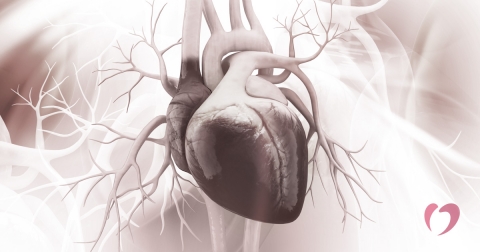What is heart failure?

Heart failure is a chronic condition where the heart can’t pump enough blood to meet the body’s needs. It affects six million Americans, and more than 900,000 new cases are diagnosed each year. It’s not a sudden stoppage of the heart like cardiac arrest or blocked blood flow like a heart attack, but rather something that gets worse over time.
The heart tries to keep up in several ways, including stretching or increasing muscle mass to pump more blood initially and pumping faster to increase total output of blood. The body tries to compensate as well by narrowing blood vessels to keep blood pressure steady despite reduced blood flow and by diverting blood away from other organs and to the heart. Over time, the heart gets weaker and weaker from working harder to try and keep up with the body’s need for blood and oxygen.
Symptoms of heart failure
In many cases, the heart and body compensate for heart failure initially, so symptoms may not occur until heart failure has advanced beyond the initial stages.
Symptoms of heart failure may include:
- Shortness of breath
- Fatigue
- Swelling in the legs, feet, or ankles
- Rapid or irregular heartbeat
- Persistent cough or wheezing
- Rapid weight gain from fluid retention
- Difficulty concentrating
- Coughing that results in white or pink-tinged mucus
- Lack of appetite or nausea
If you have any of these symptoms, contact your doctor to schedule an appointment. If you have chest pain, severe weakness, fainting, or sudden and severe shortness of breath, seek emergency medical attention, as your condition may be more serious.
Risk factors for heart failure
The most common heart conditions that can lead to heart failure are coronary artery disease, high blood pressure, and previous heart attack. Other risk factors include heart valve problems, cardiomyopathy, congenital heart defects, and obesity. Conditions like sleep apnea, diabetes, stress, lack of exercise, and an unhealthy diet may also increase your risk.
Diagnosing heart failure
Your Oklahoma Heart Hospital physician may use a variety of methods to diagnose heart failure, including a physical exam and discussion of your symptoms during an office visit. Diagnostic tests may include a chest x-ray, echocardiogram to measure the ejection fraction (how well your heart pumps blood) or check for thickening of the heart muscle, or blood tests.
Treating heart failure
As with many heart conditions, lifestyle factors can have a big impact on the progression of heart failure. Some lifestyle changes include reducing stress, reducing salt intake, quitting smoking, reducing alcohol use, eating a healthier diet, getting more exercise, and getting enough sleep.
In some cases, your doctor may recommend prescription medications or specific supplements to help improve your heart function. Be sure to tell your doctor about any prescription or over-the-counter medications you’re already taking, as well as any vitamins or supplements you take. Prescribed medications may include beta blockers, diuretics to reduce fluid retention, ACE (angiotensin converting enzyme) inhibitors, or ARBs (angiotensin receptor blockers).
In cases of severe heart failure, your doctor may recommend an implantable device to help your heart function or even a heart transplant.
Contact the Oklahoma Heart Hospital today to schedule an appointment with one of our physicians if you are experiencing any symptoms of heart failure.




